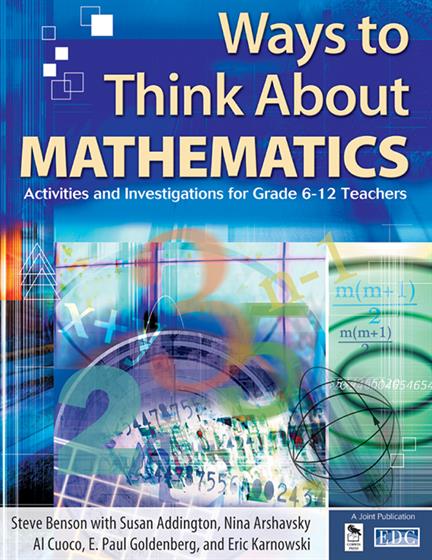Hands-on, Practical Guidance for Educators
From math,
literacy, science, equity, multilingual learners, and SEL, to assessment, school counseling,
and education leadership, our books are research-based and authored by experts
on topics most relevant to what educators are facing today.

Ways to Think About Mathematics
Engaging in mathematical investigations yourself will help you be a better mathematics teacher!
National, state, and local curriculum requirements and recommendations increasingly emphasize active student involvement in exploratory investigations. This accessible volume uses immersion experiences in algebra, geometry, and statistics to help mathematics teachers improve their knowledge and understanding of mathematical concepts. Funded by the National Science Foundation, and successfully field-tested in a wide variety of settings, the materials emphasize all components of mathematical investigation, focusing on:
- Mathematical ways of thinking
- Discovering connections between mathematical ideas
- Posing and analyzing problems
- Linking higher-level mathematics to the content in grades 6-12
- Grade Level: 6-12
- ISBN: 9780761931058
- Published By: Corwin
- Year: 2004
- Page Count: 264
- Publication date: October 05, 2004
Review Copies
Other Titles in: Mathematics | Staff Development & Professional Learning | Teaching Methods & Learning Styles

